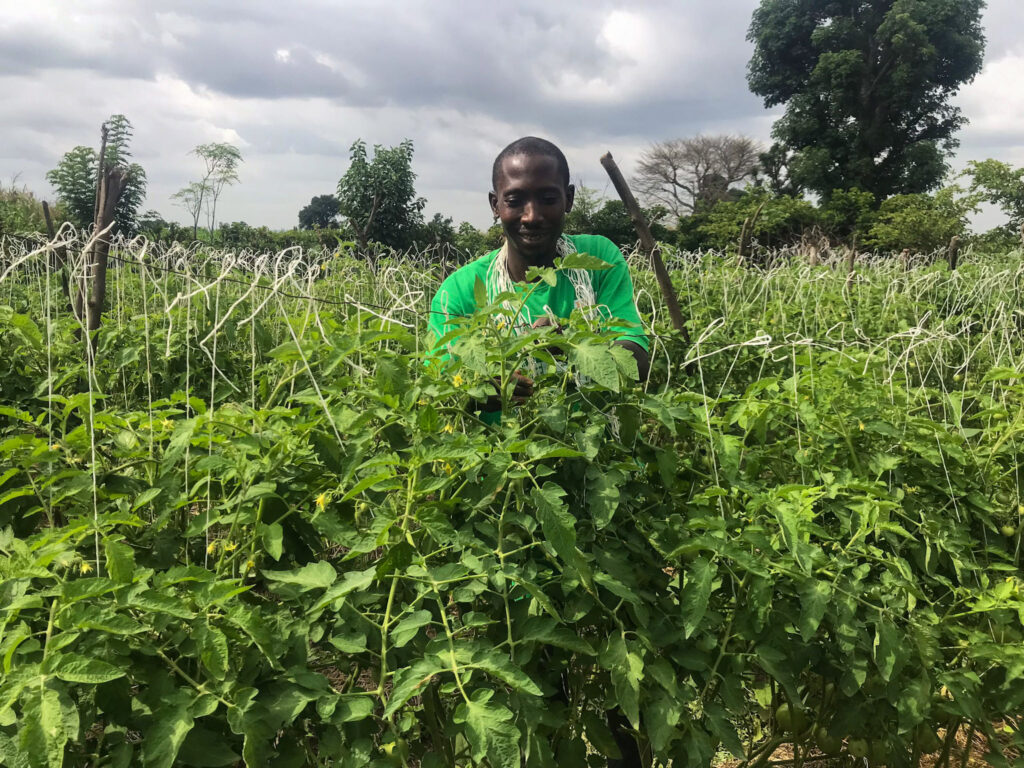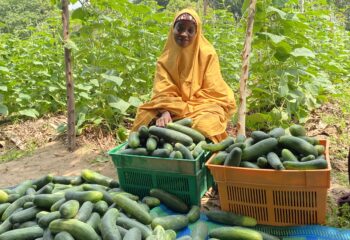
For 33-year-old Abubakar Garba, a father of two from Zaria, Kaduna State, farming had long been a solitary struggle.
Relying on traditional methods passed down through generations, he worked tirelessly on his small plot, yet low yields and limited market access kept profits slim. Financial stability felt like a distant dream.
That changed in 2021 when Abubakar began working with HortiNigeria. The program introduced good agricultural practices and eco-efficient solutions to his community – and, more importantly, unveiled a transformative idea: agribusiness clusters.
These cooperatives bring together 50–70 farmers, each with a defined role in production, marketing, and distribution, turning individual efforts into collective strength.
“Our lives have changed. Some of us have bought more land, more inputs, and many other things we could not afford before.”
Abubakar Garba
In 2023, Abubakar joined the Gamayyen en Kasuwa da Manoma cluster and was elected its first secretary. “We meet twice a month to discuss what’s happening in the cluster,” he explained. “We’ve all learned so much.”
Cluster membership quickly began to reshape his farming journey. Together, members plan each season, share information on input prices, and coordinate planting schedules.
This collaboration has opened new markets: Abubakar and his fellow farmers now sell directly to buyers in Abuja, Port Harcourt, and Warri, bypassing middlemen and delivering fresher produce at better prices.
By adopting improved spacing, pest control, mulching, and post-harvest handling techniques, Abubakar increased his yields by 50%. Thanks to coordinated marketing, higher productivity translated into higher income for his family and others in the cluster.
“Our lives have changed,” Abubakar says. “Some of us have bought more land, more inputs, and many other things we could not afford before.”
For Abubakar, the transformation is deeply personal. He has expanded his farm, built a new mud house for his family, and now pays his children’s school fees with confidence.
Looking ahead, he plans to reinvest in his farm and has set his sights on buying a car, a milestone that once seemed far beyond reach.
Abubakar’s story reflects the broader impact of HortiNigeria’s approach—turning isolated struggles into shared success. Through knowledge, cooperation, and access to better markets, smallholder farmers like Abubakar are proving that with the right support, agriculture can be both profitable and sustainable.
HortiNigeria (2021-2025) is funded by the Embassy of the Kingdom of the Netherlands in Nigeria and implemented by IFDC, together with KIT Institute and East-West Seed Knowledge Transfer Foundation (EWS-KT). The program promotes sustainable, inclusive, and profitable horticulture value chains that empower farmers — especially women and youth — to thrive in a modern, resilient agricultural economy.





